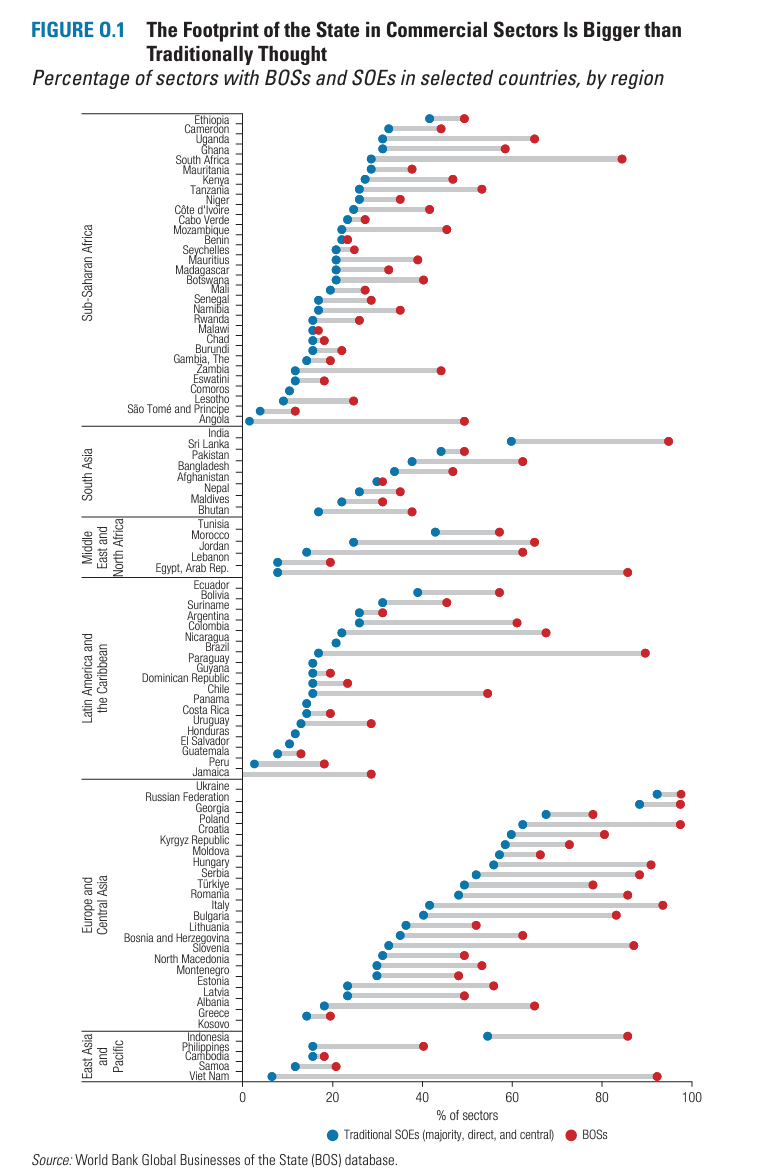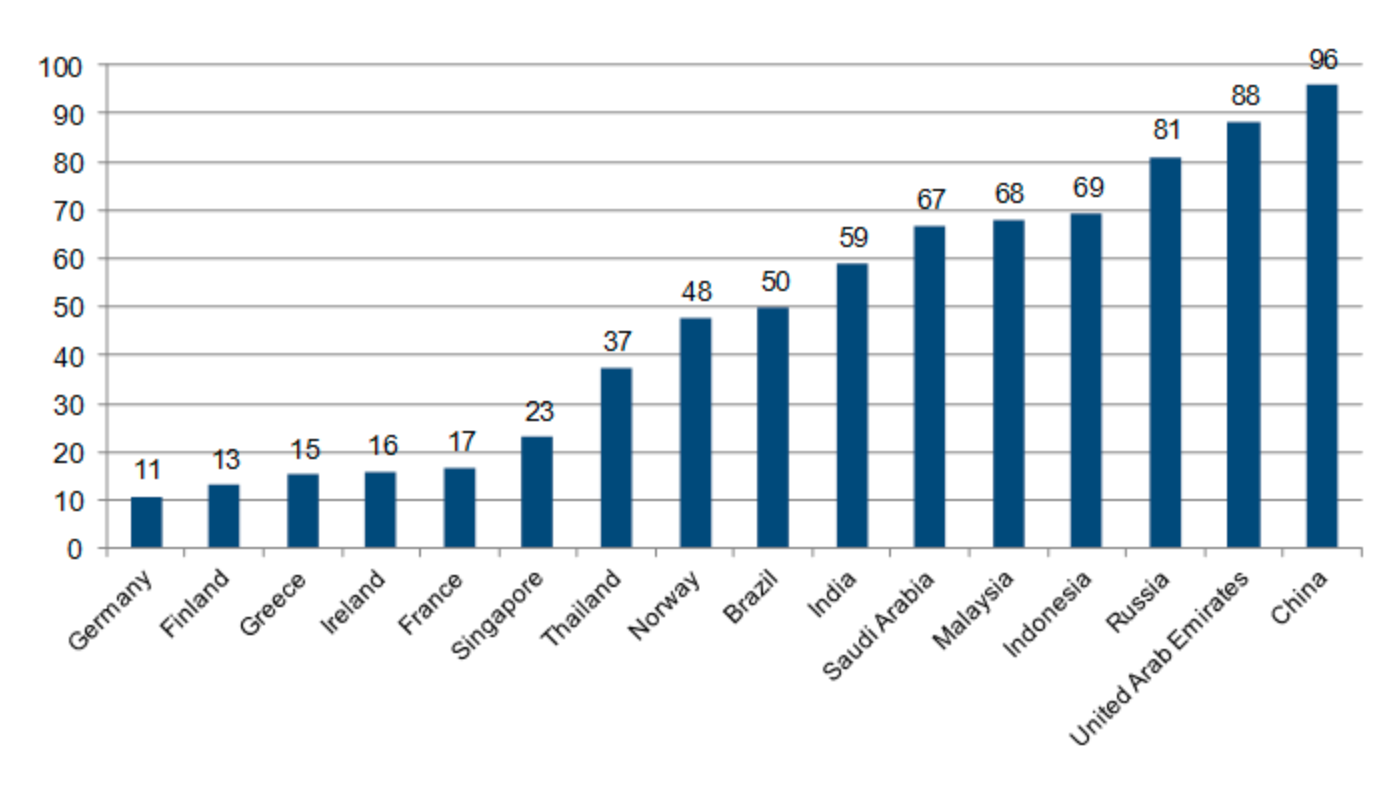Since when is Russian economy "centrally planned"? Do we have a different definition of it?
My understanding is that state owned enterprise has become very dominant in Russia after the start of the war, and a lot of private business is now being state directed. So, I think it's fair to say that the commanding heights of the economy are largely under state control now.
That's not based on the article is it? The article seems to attribute growth primarily to the war economy.
The war industry isn't actually that big of the overall percentage of the overall economy. Western publications tend to focus on the war industry as the explanation, but the reality is that western decoupling opened up a lot of economic niches that are now being filled domestically.
state owned enterprise has become very dominant in Russia after the start of the war
Kind of what he said?
Yeah, I read the comment. The thesis of the title isn't supported by the article, which makes for a confusing read.
if France gets a GDP boost by cranking their military budget into their state arms companies i don't think anybody would call that central planning. has Russia really reorganized their economy?
During the first world war imperialist countries used a centrally planned economy, while still remaining bourgeois dictatorships.
This is not a dunk on capitalism, only yet another proof that "free market" is objectively utter bullshit because even capitalists know
is russia a centrally planned, mobilized economy right now? this isn't rhetorical
I don't have enough knowledge to answer, I'm just saying that it's not unrealistic when looking back at History
Military spending is still a small part of overall GDP in Russia, so the claim that Russian economy is recovering due to cranking up of their military budget doesn't make sense. A far more sound explanation is that decoupling from the west created economic niches that are now being filled domestically. And I think it is fair to say that Russian economy has been reorganized in the past two years with state owned enterprise such as Rostec taking a much more prominent role.
Rostec is a military manufacturer! further, what you're describing isn't supported by the article and doesn't really sound like central planning. when Pemex has a good year Mexico is not any less neoliberal
I'm not going by just the article itself. Details of Russian economy are well documented.
Rostec is also a lot more than just a military manufacturer. Meanwhile, there have been plenty of articles over the past two years that explain how Russia is reverting back from liberal policies and putting the state in commanding heights of the economy.
A 2023 World Bank study gives a pretty good overview. In particular, it distinguishes between businesses of the state (BOS), that are at least 10% government owned by some government, and state owned enterprises (SOE), which are majority owned or more, and controlled, by the government.
Top line result is shown in the following chart:

And here's another chart showing SOE in Russia compared with China https://cepr.org/voxeu/columns/state-owned-enterprises-global-economy-reason-concern

Russia's high levels of SOEs is not far behind China by many measures.
Central bank plays a big role in Russia as well, and has large influence over the funding of the private enterprise. FT even moaned about state directed economy standing up to sanctions back in 2022.
Finally, here's an article talking deprivatization of Russian economy.
Probably in no means comparable to that of the Soviet Union, but the damage done to the oligarchs' wealth and influence (who no one liked anyways for obvious reasons, who had been a serious hurdle for the Russian state to deal with, and who had ironically been pretty pro-western or west-compromised) is something incredibly positive to consider- as is the exodus of western corporations, leaving their assets to be bought up on the cheap and their roles to be filled by local or Chinese brands, and the newfound push back to self-sufficiency in many fields.
Any one of these three aspects alone would be more than enough to call it a serious reorganizing (though not one remotely as drastic as returning to communism, sadly), economically, and politically.
Russia is probably not returning to communism anytime soon, but it's headed in incredibly decent places if you ask me (other than the issues of conservative politics, but they're not headed into fascism either unlike much of the west, and they remain non-imperialist). And if you ask me- it's not the best case scenario, sure, but it's an exceedingly good thing for Russia and the wider world.
Looks like the US is remaking the Soviet Union. Thought that's what Putin was supposed to be doing.
Capitalism has winners and losers and the winners don't like competition. This leads to monopoly. The real questions is if the monopoly meets the needs of the people and have a way for the people to fight those in power with the excesses.
Every stable economies are Keynesian
Every failed economies are called Free Market
 really makes you think
really makes you think
World News